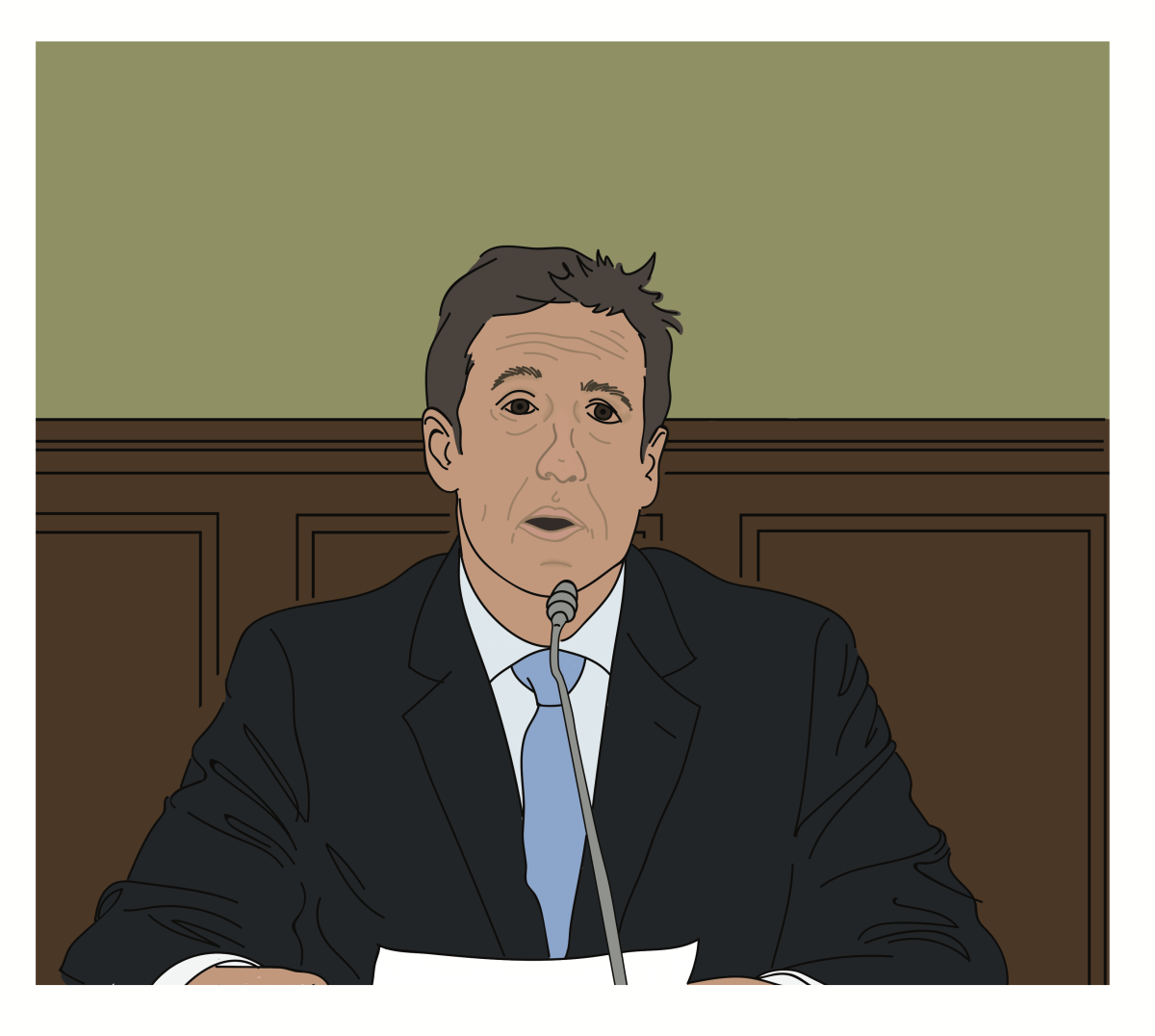What Michael Cohen’s testimony really means
Michael Cohen’s testimony in front of the House Oversight and Reform Committee on Feb. 27 has opened up a new perspective into who President Donald Trump is and how he uses others—that is if you believe what Cohen said.
Cohen was Trump’s former personal lawyer, also known as his “fixer.” He was a former vice president of the Trump Organization, provided personal counsel for the president and dealt with Trump’s more private matters. In all of his roles, Cohen described his job as monopolizing his life.

He continued to work for Trump during his 2016 election campaign, and during that time the adult film star actress, Stormy Daniels, accused Trump of having an affair with her in 2006.
Due to this self-described life-monopolizing job that required steady allegiance to and support of Trump, the Stormy Daniels case proved to be Cohen’s downfall.
In April 2018, Cohen’s hotel room, office and home were stormed by the FBI investigating Cohen for bank fraud, wire fraud and campaign finance violations. In August 2018, Cohen pleaded guilty to tax evasion, false bank statements and campaign violations.
As if that’s not enough, in November, Cohen pleaded guilty to lying to Congress concerning Trump’s knowledge of the Trump Tower project in Moscow.
So, what does this have to do with his most recent testimony?
Cohen’s former relationship with Trump has influenced the Mueller investigation greatly, as well as whether Congress trusts Cohen and his testimony all together.
Cohen was reportedly very close with Trump prior to pleading guilty to perjury, stating in 2011 that he was a loyal employee who liked Trump quite a bit. He even called himself “the sixth Trump child.”
However, once Cohen pleaded guilty to perjury and began to cooperate with the Mueller investigation, relations turned sour between the two, with Trump for example, calling Cohen a “weak man.”
With relations soured between the former close partners, Cohen switched political parties before the midterm elections and advised voters to vote Democrat to avoid the current political turmoil.
Cohen’s obvious distaste for his former boss leaves people somewhat worried about trusting what he said at last Wednesday’s testimony: he has already been found guilty of lying to Congress, and what he has said now is pretty severe.
During his testimony, Cohen publicly declared Trump a racist and a conman. He said Trump was well aware of Cohen paying off Daniels and of WikiLeaks leaking Hillary Clinton’s campaign advisor’s emails.
These are substantial claims that many are wary of believing. As Republican Rep. Carol Miller questioned Cohen: “You’re about to go to prison for lying. How can we believe anything you say?”
This is important to consider, but one must also consider, how much does Cohen have to lose? Respect for him is basically gone, the president bashes him on Twitter frequently, and he is about to go to prison.
Cohen has proved himself to be untrustworthy and he does not offer much evidence for his claims of the president being a racist and conman. What he is saying is not unbelievable.
In 2015, Trump tweeted: “The Mexican legal system is corrupt, as is much of Mexico. Pay me the money that is owed me now — and stop sending criminals over our border”.
Moreover, Trump has yet to release his tax returns (and has no plans to), but in 1995 he reported a loss of $1 billion, “a tax deduction so substantial it could have allowed him to legally avoid paying any federal income taxes for up to 18 years”. There are countless examples from numerous other sources that prove Cohen’s accusations.
Neither Cohen nor Trump is believable, but one of them is the president and the other is going to prison.
Cohen’s testimony is no more shocking than the countless terrible things Trump has said both in and out of office that prove he is not trustworthy, so what is it going to take to remove from office?
Cohen is the most unscrupulous former Trump administrative liaisons of them all, yet we let someone on his level run the country.







































